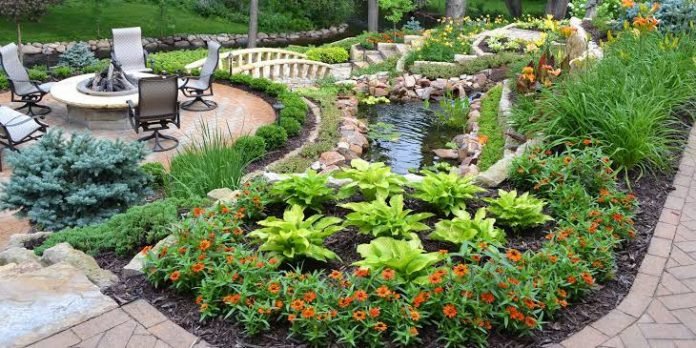Table of Contents Show
Planting plants is always a fantastic and healthy alternative to beautify your home and, therefore, we review the benefits of landscape gardening so that you make the most of this particular end of the year.
Botanical and medical experts agree when pointing out the benefits of gardening for humans.

In addition to having the possibility to set any habitable area inherently, gardening allows you to find a healthy occupation when you have a lot of free time or, as in 2020, it is impossible to leave home.
Reduce stress
Gardening reduces stress in people prone to depression and anxiety.
Various scientific studies have shown that this activity helps to improve mood and reduce levels of cortisone, the stress hormone.
Helps exercise at home
In the same way, another of the benefits of gardening is to combat a sedentary lifestyle.
Activities like leveling the ground, preparing compost, and clearing weeds are great for working muscles and joints.
This is of great help in people who suffer from diabetes or osteoporosis since doctors recommend at least 150 hours of weekly physical exercise.
Read Also:
Oxygenate and decontaminate your habitat
Plants are the best source of oxygen for your home.
Planting flowering shrubs and species such as ferns, chrysanthemums, lilies, and bamboos will help to significantly optimize the air quality in any intervened area, in addition to providing a pleasant natural aroma throughout your home.
Reduces sleep disorders
In the same way that it helps to calm and relax the emotions, gardening helps fight insomnia.
The physical exhaustion caused by the activities carried out, and contact with nature, outdoors, reduce the levels of stress and anxiety.
This, in turn, makes it easier to fall asleep at night.
Increase vitamin D levels
Suppose you work gardening outdoors, on sunny days. In that case, you will have an excellent natural source of vitamin D.
It is that sunlight is one of the main sources of this vitamin complex, which helps prevent and fight diseases such as osteoporosis, arthritis, and other bone and muscle disorders, facilitating the absorption of calcium in the body.
Benefits of gardening during confinement
A quarantine call is a radical measure, as difficult to take as it is to abide by.
Stopping city activity and forcing citizens to stay at home for several days or weeks is not easy, especially when it comes to, as in 2020, the second confinement in less than a year.
In this sense, the benefits of gardening are of great help, from the physical and psychological point of view.
Let’s see what other positive aspects of planting vegetables produces in your home if you have to spend more time than normal without leaving the house.
Produces basic fruits and vegetables
For this reason, if you grow plants at home (such as tomato, lettuce …), you can have an ideal source of fruits and vegetables to guarantee a complete and healthy diet during winter confinement.
Clear and occupy the mind
If you decide to build a garden, you will have a healthy occupation for a long time.
Conceiving the layout, selecting plants and accessories, preparing the grounds, planting and maintaining the garden takes time, and this is great for clearing and keeping your mind busy if you have to spend several days at home.
Also, the contact with earth and plants will always fill you with good energy.
Keep the kids busy
For the little ones in the house, confinement can be a real torture.
However, gardening is a great activity to keep them busy, as they can be in an outdoor area, collaborate with productive work, and, most importantly, become aware of how important plants and natural resources are for their well-being and survival.
Helps improve mood and self-satisfaction
In this section, various scientific studies support the so-called “horticultural therapy”, That is, the use of gardening to optimize people’s moods, since contact with nature produces” physical, emotional and spiritual “well-being.
This well-being is generated through the work done, the conviction of undertaking an activity of one’s own free will, and the gratification of seeing the fruits of a determined idea and effort.
In the end, everything will translate into a green space created to satisfy a personal need (having a space for relaxation, beautification, recreation, or food production, for example).









